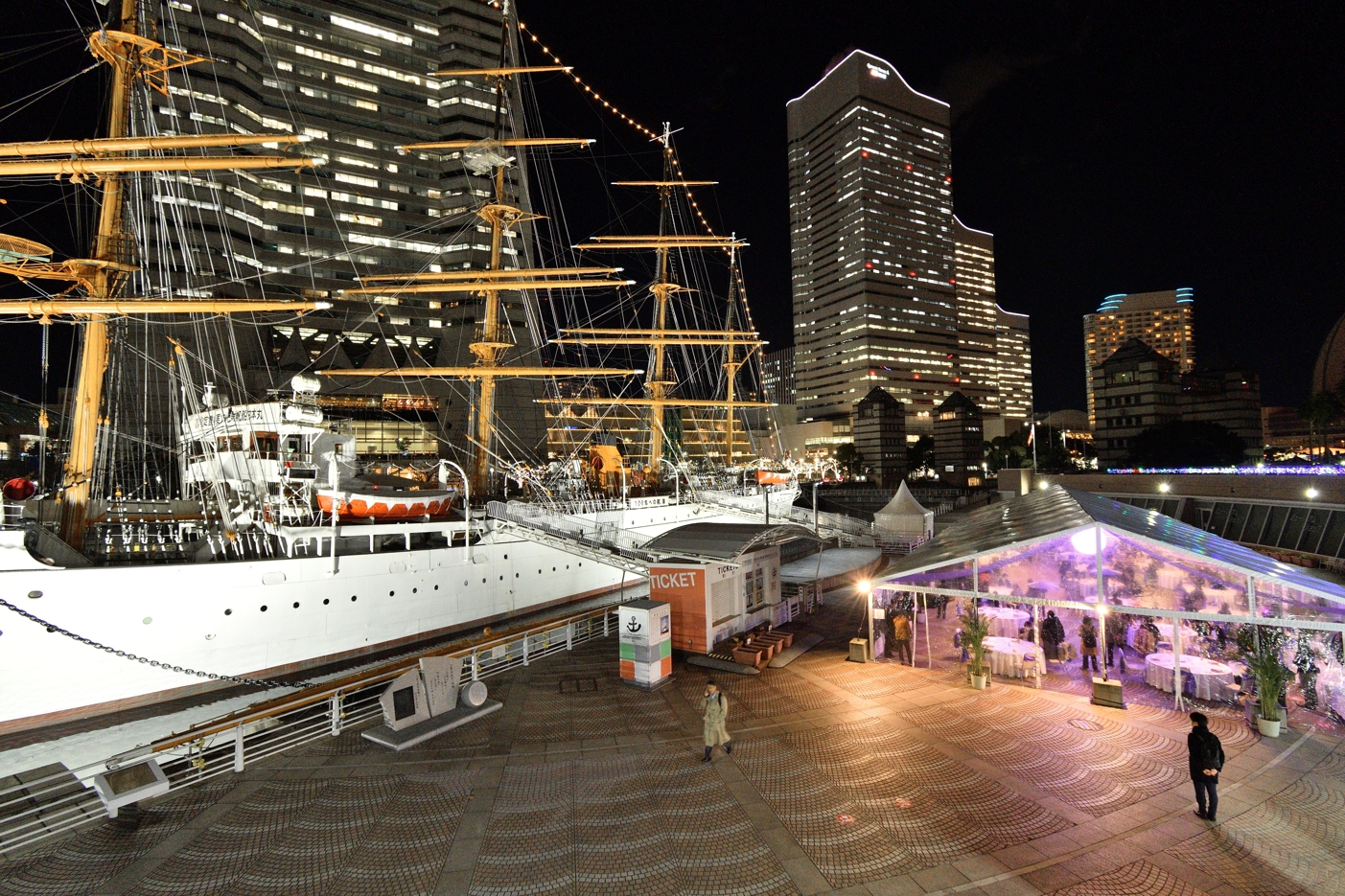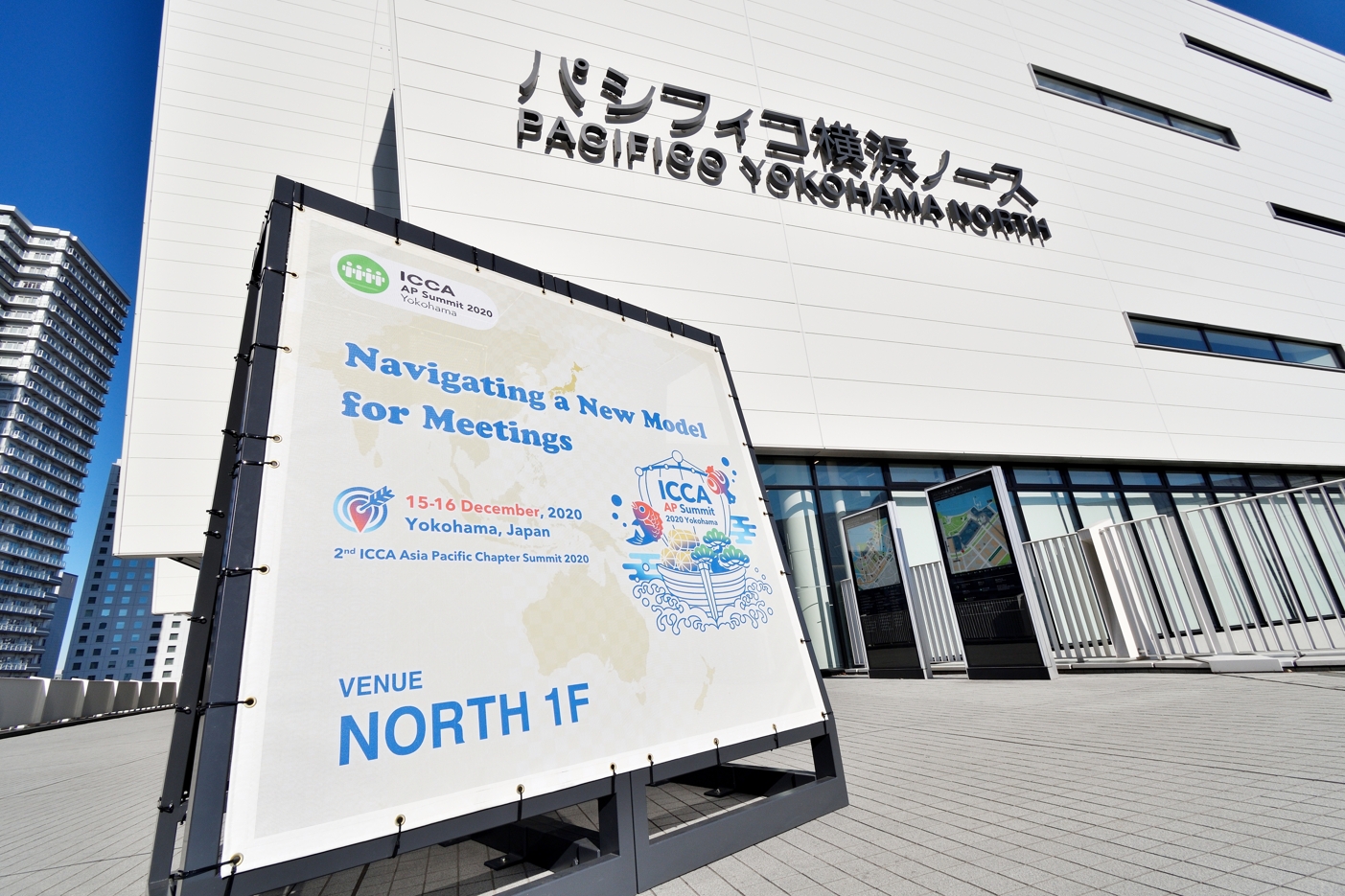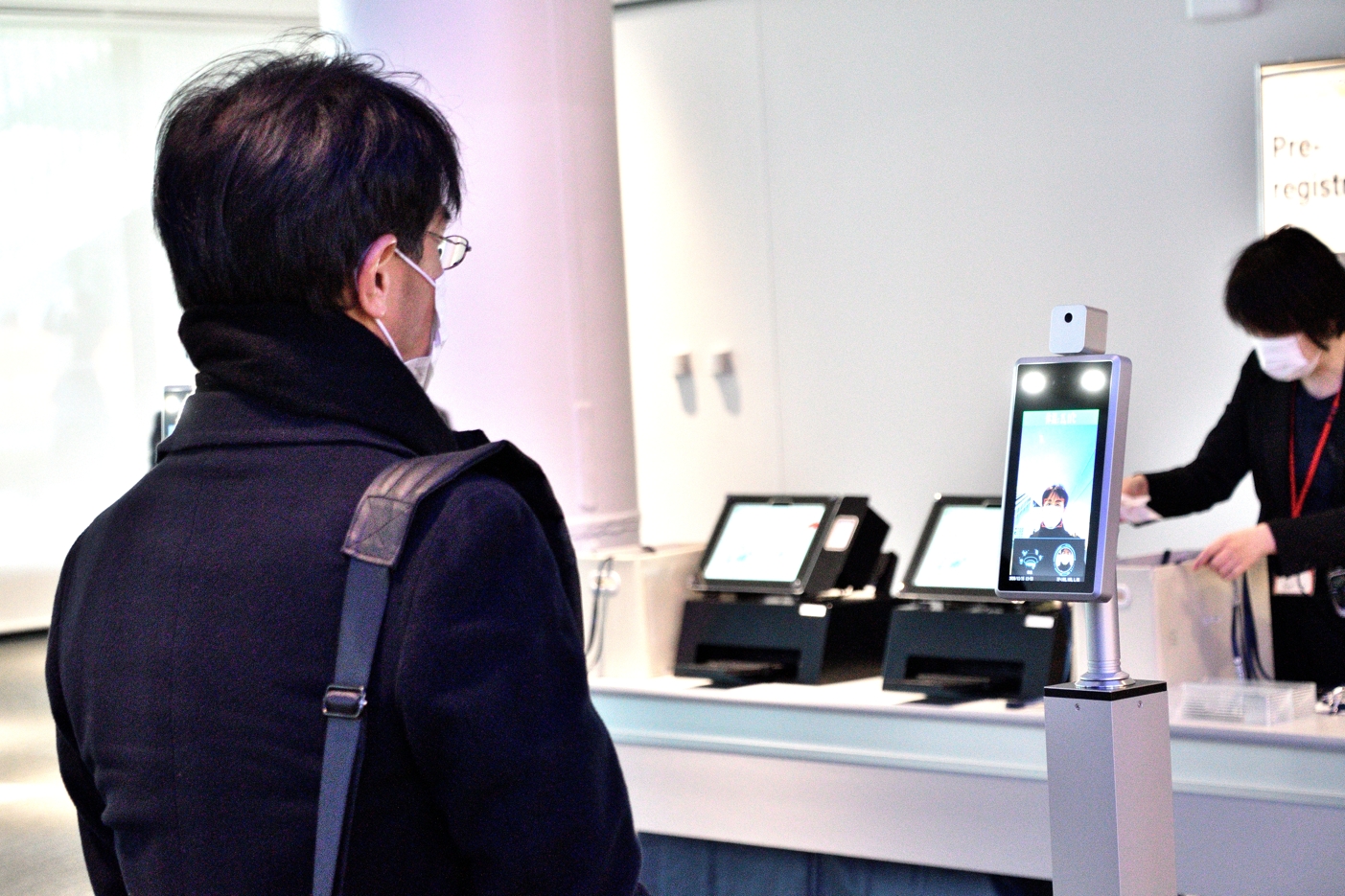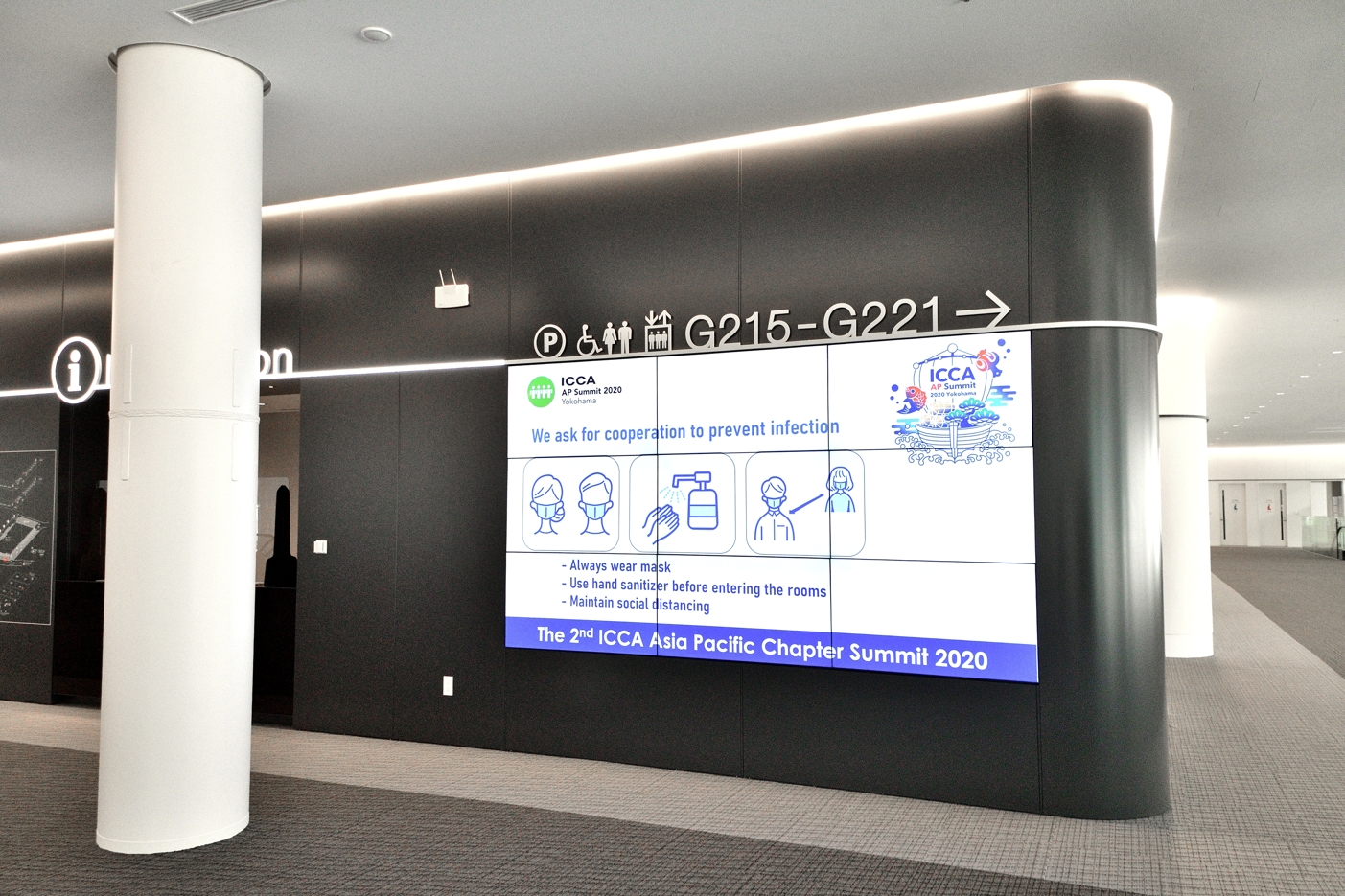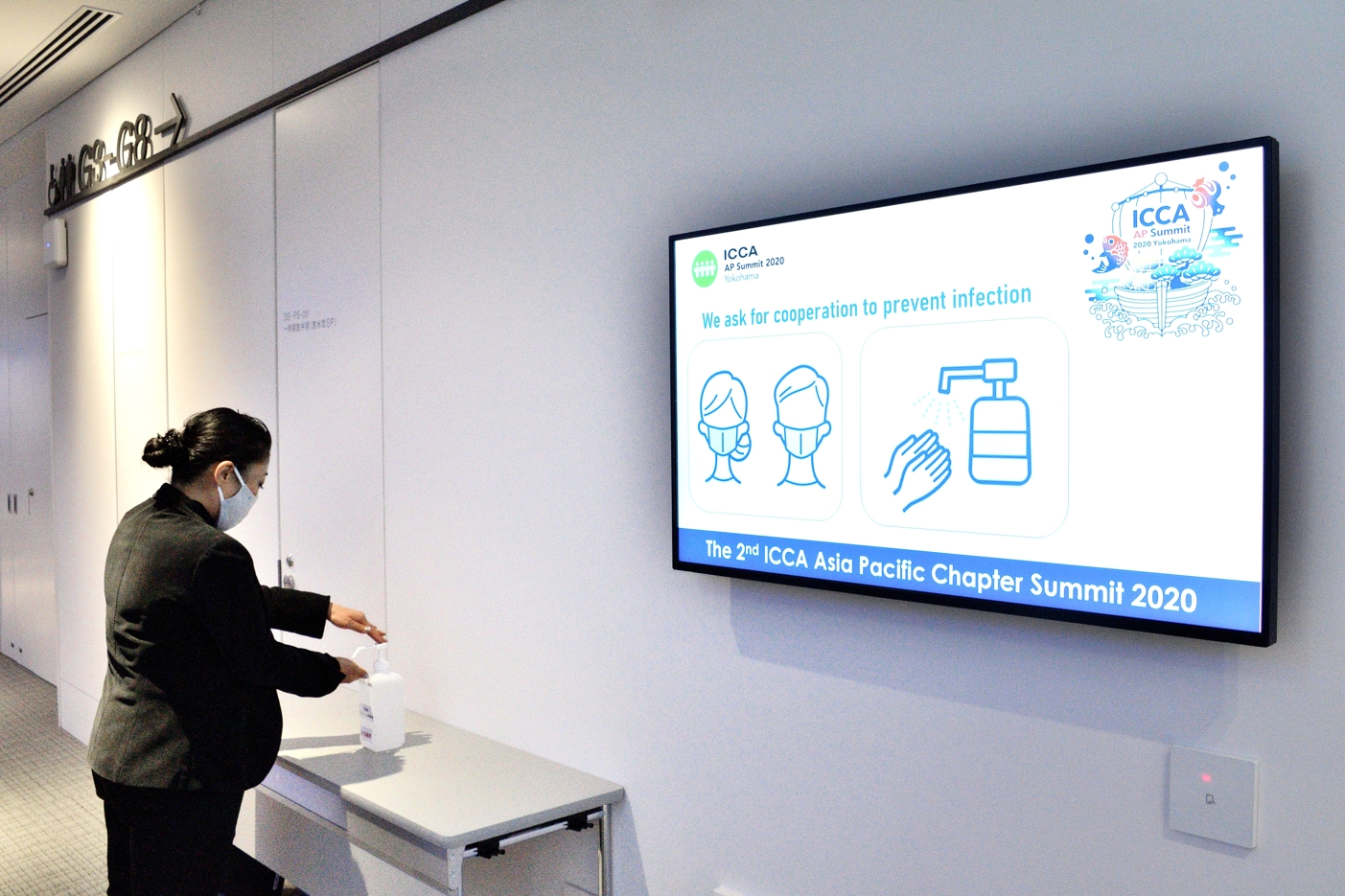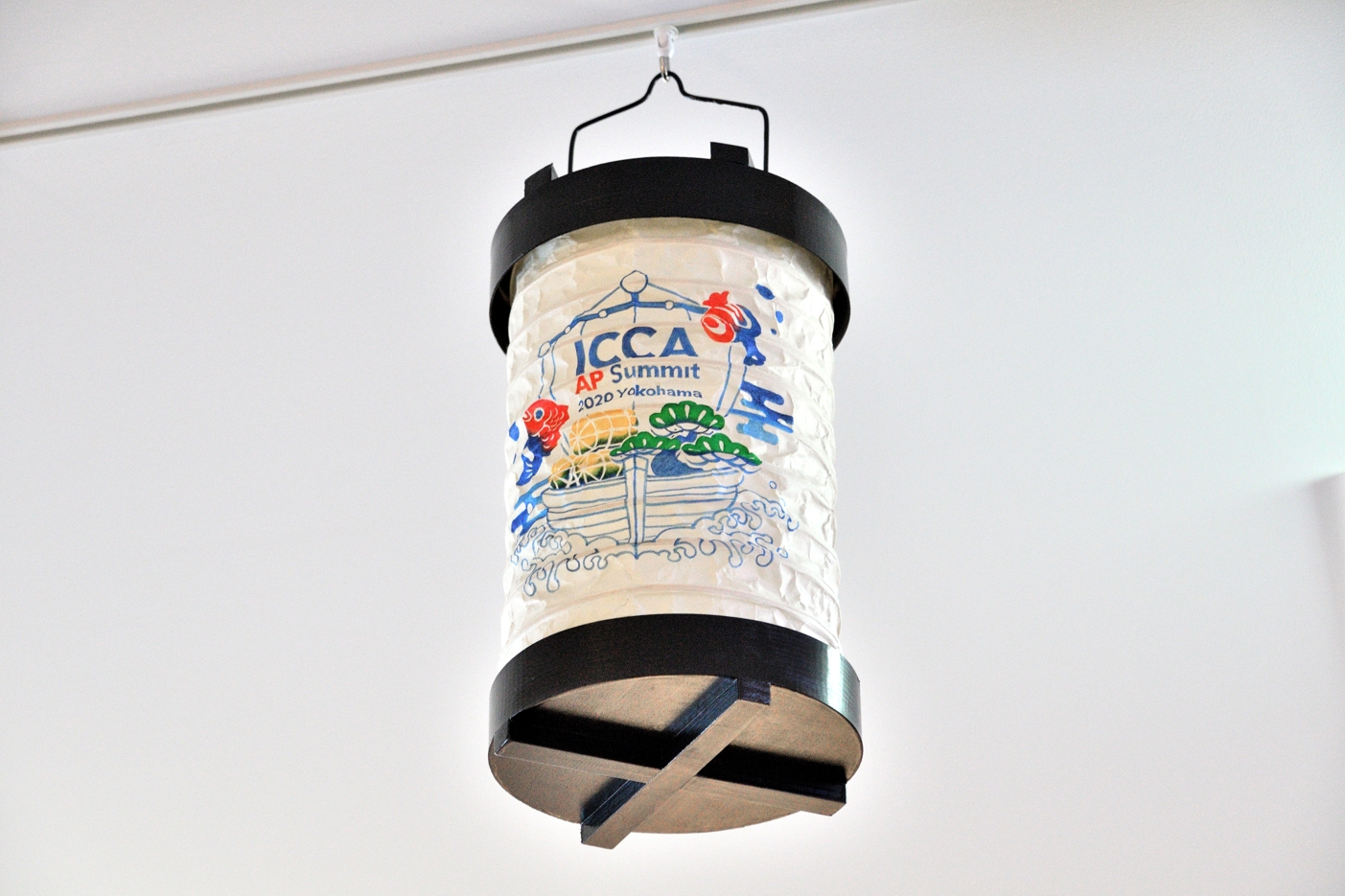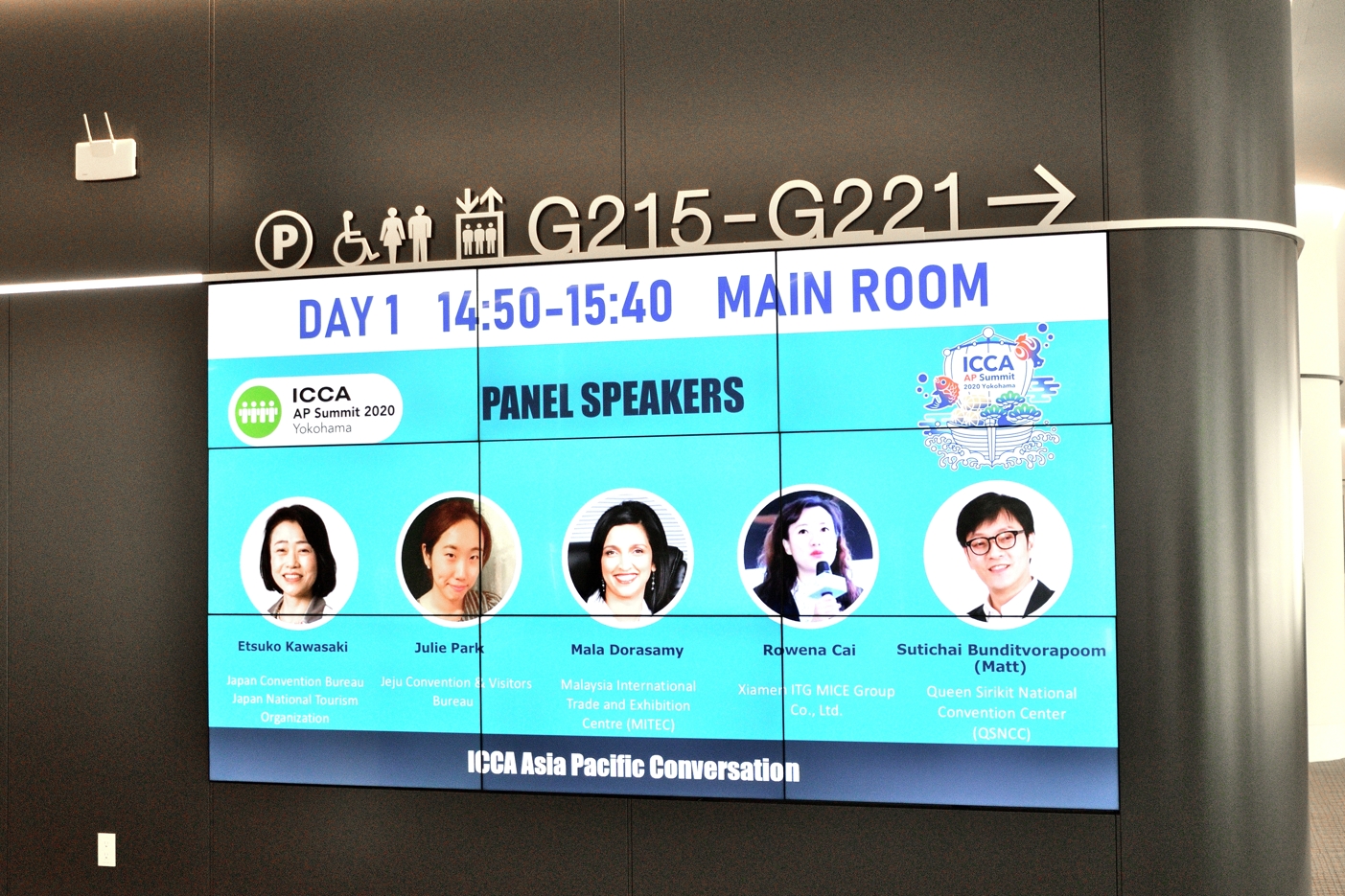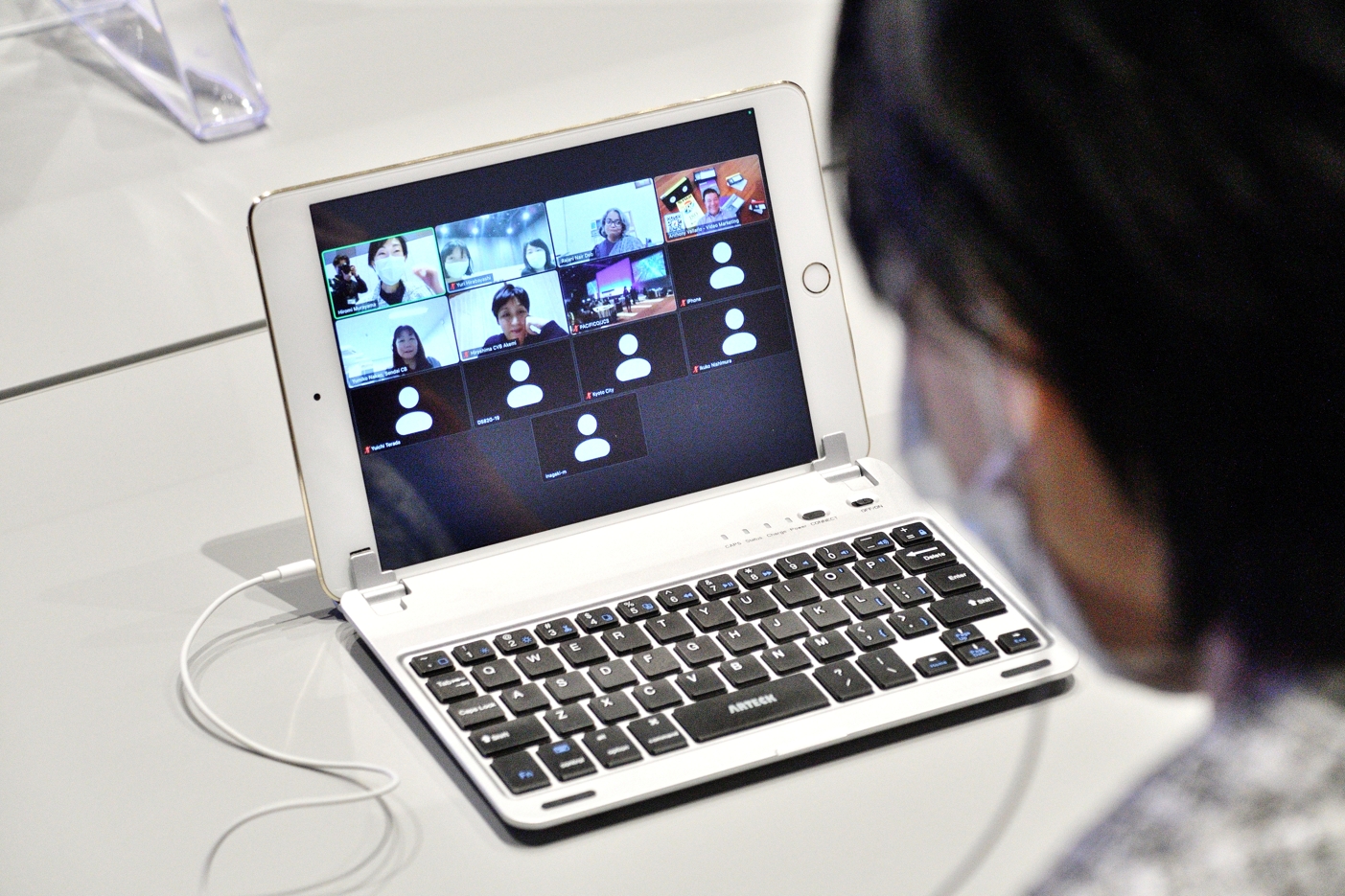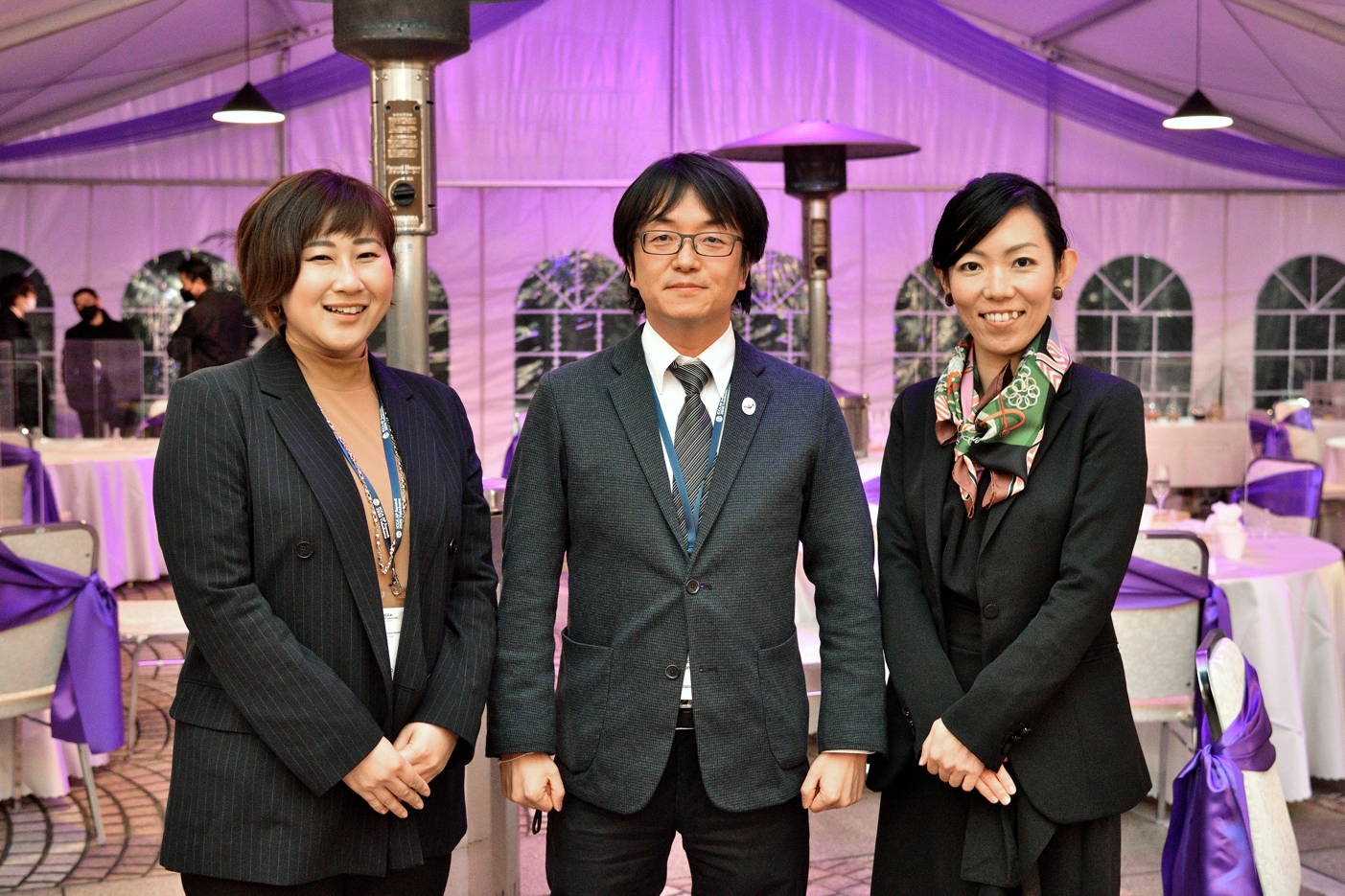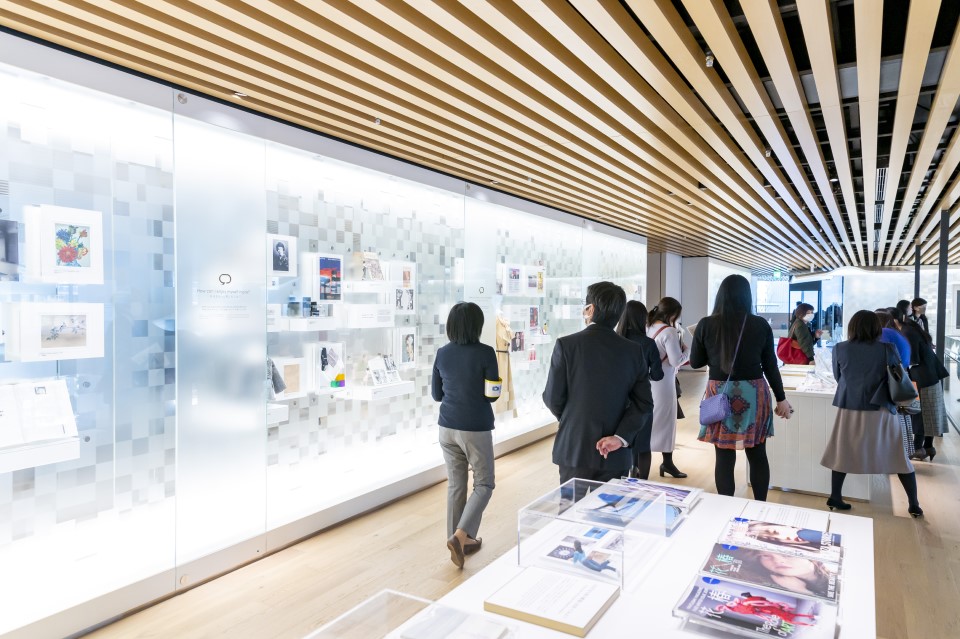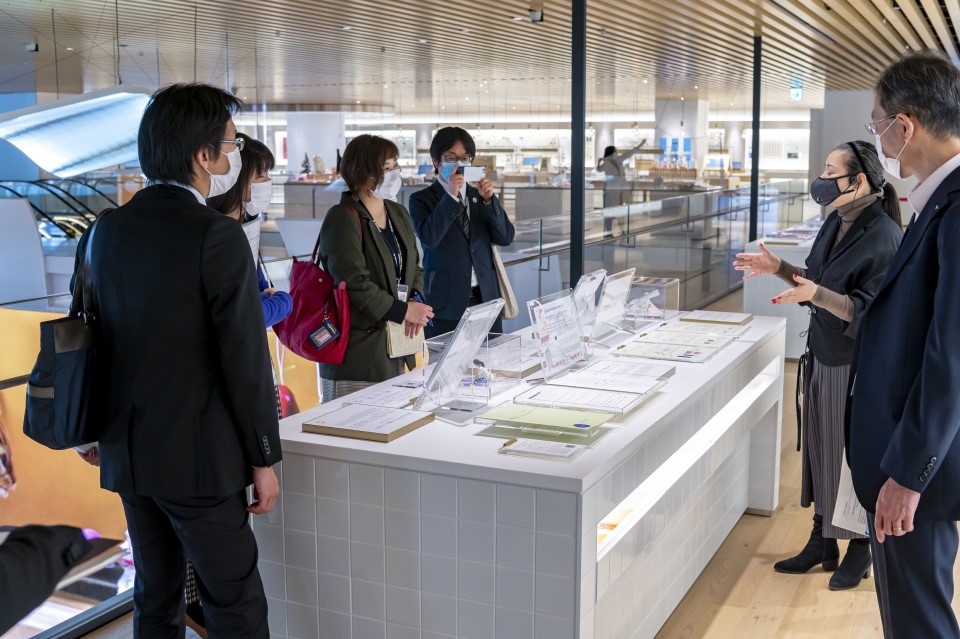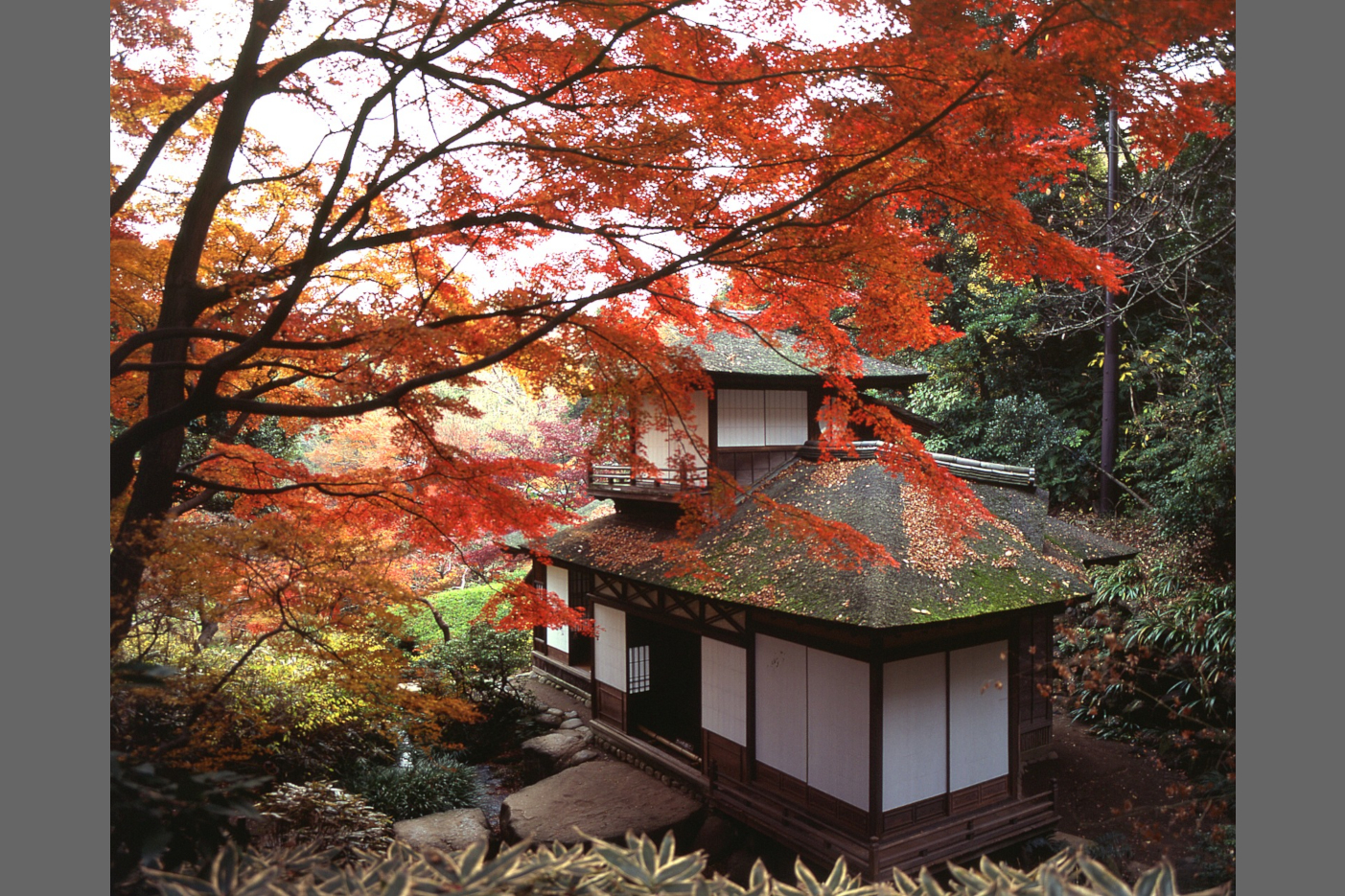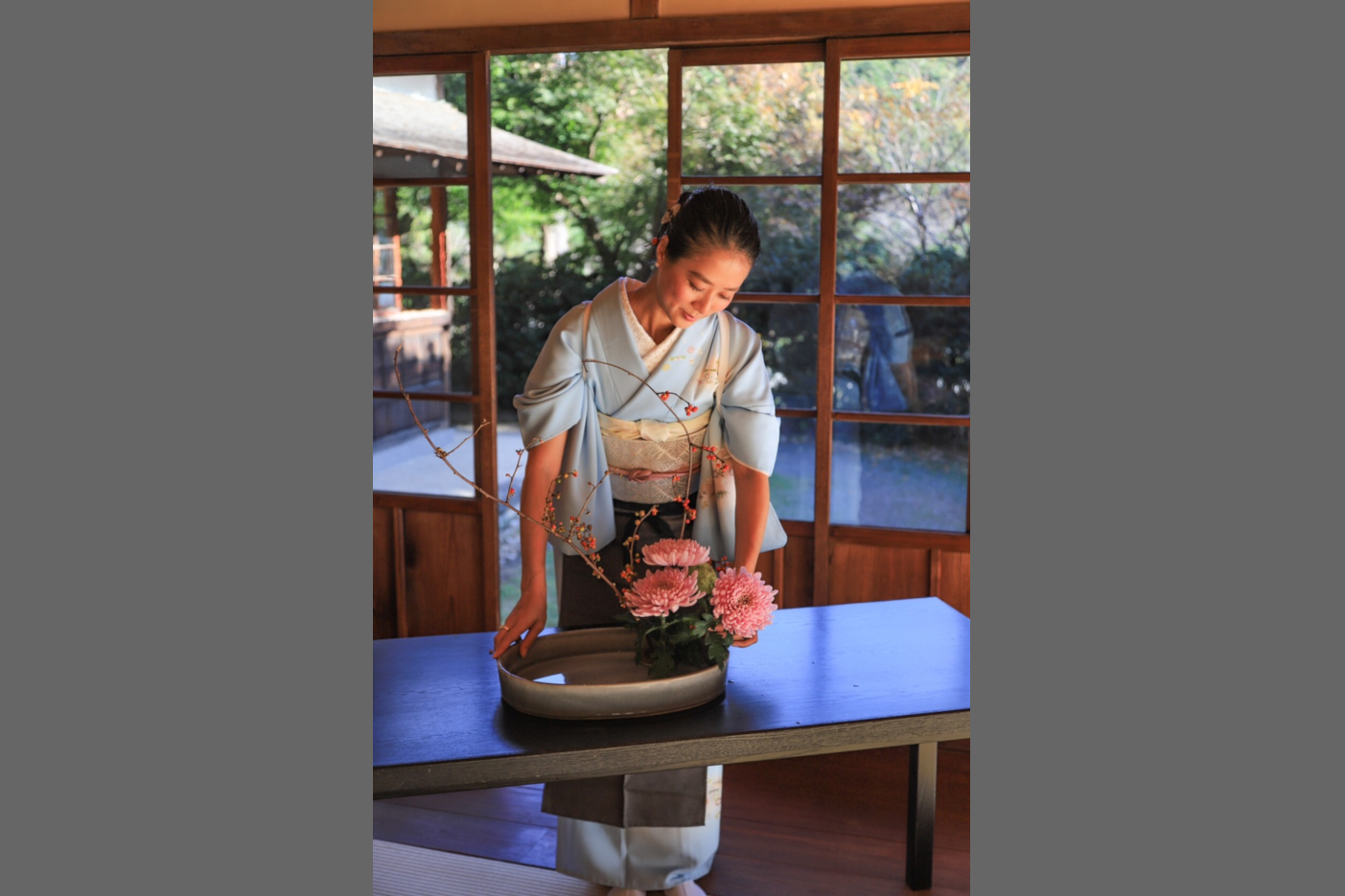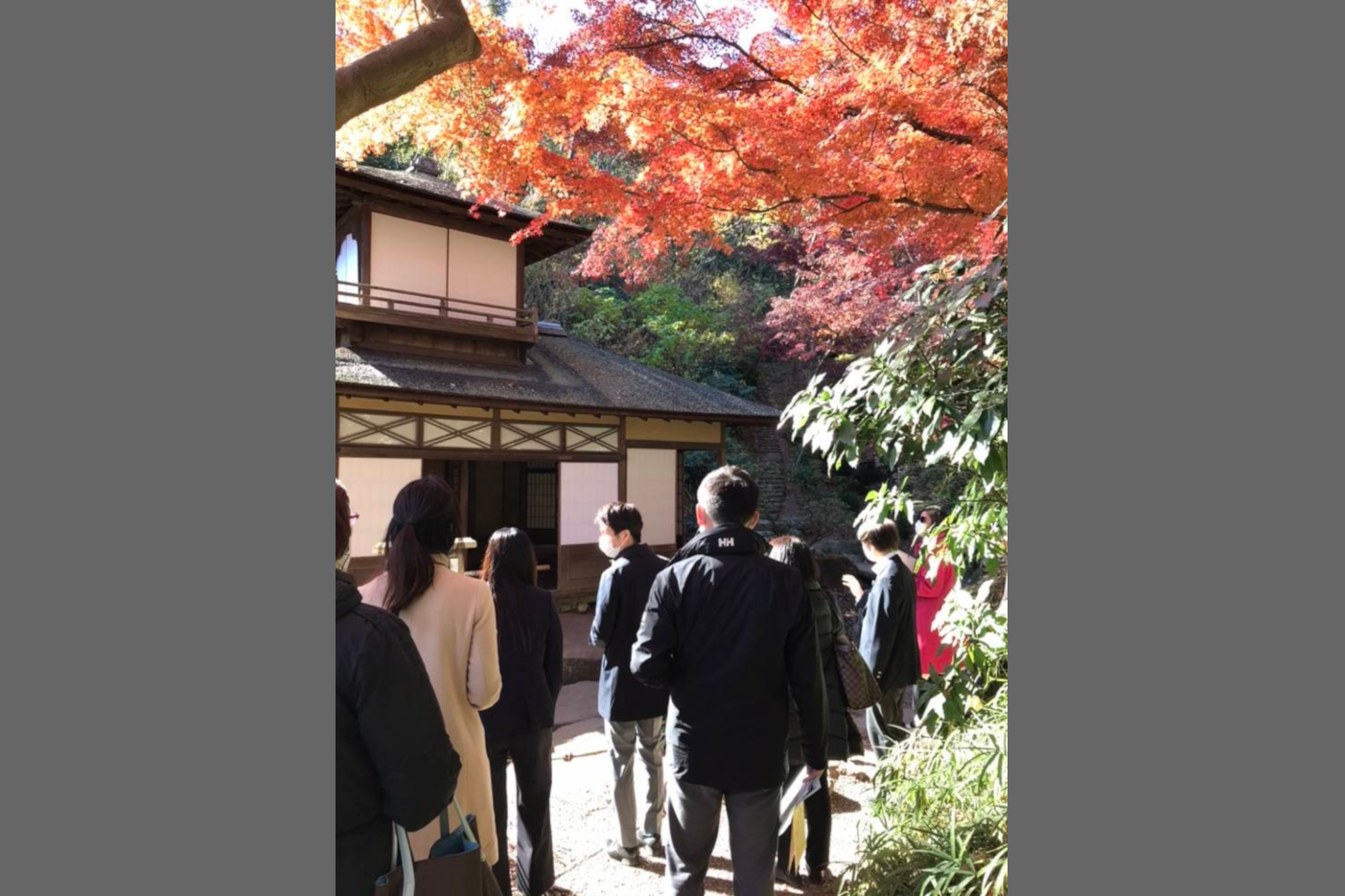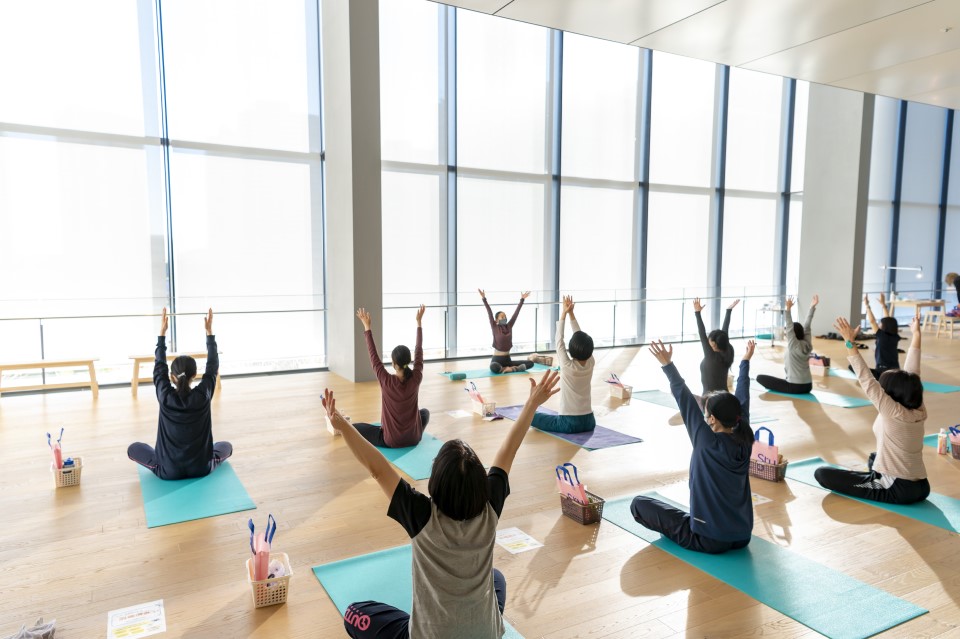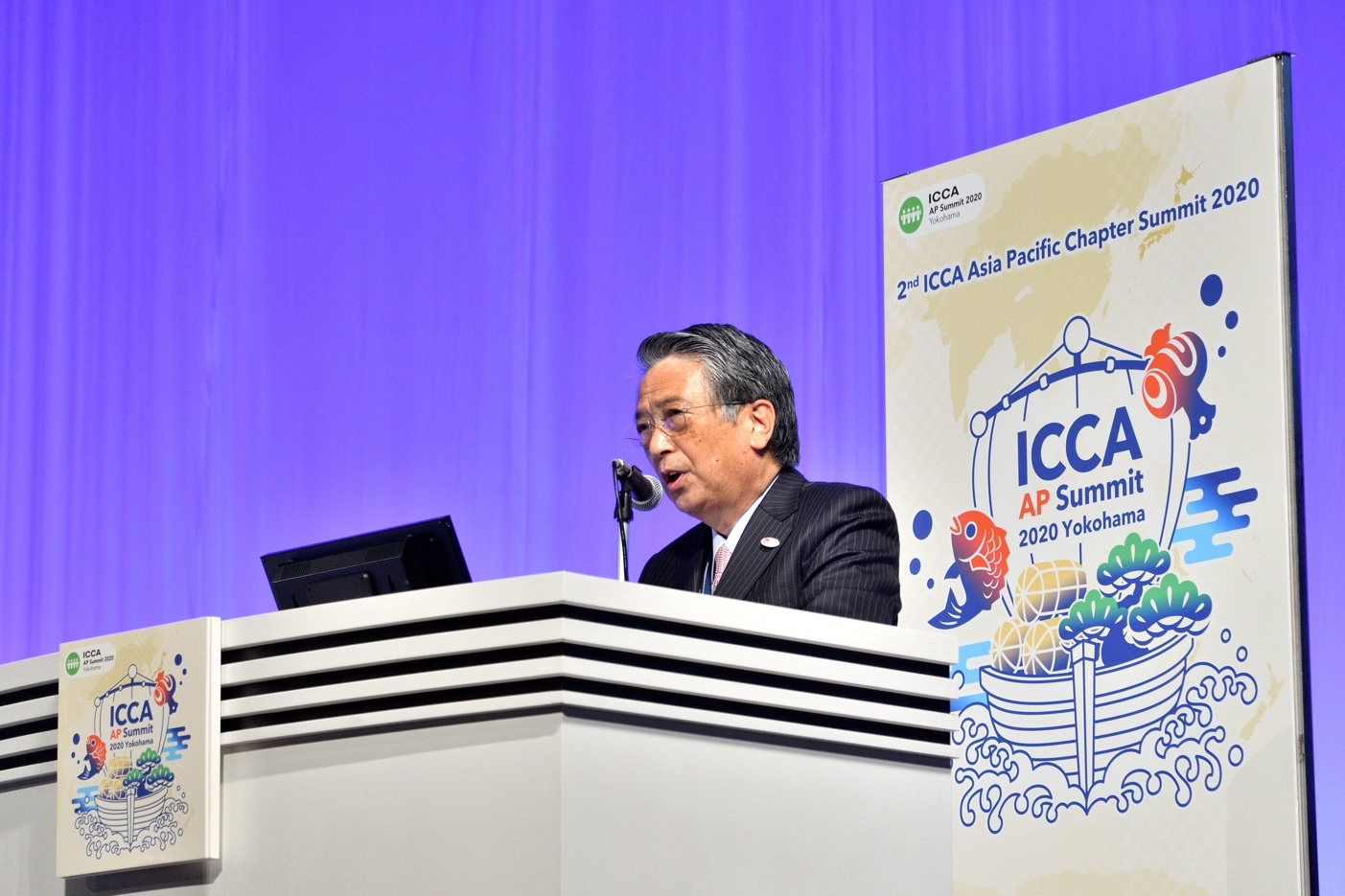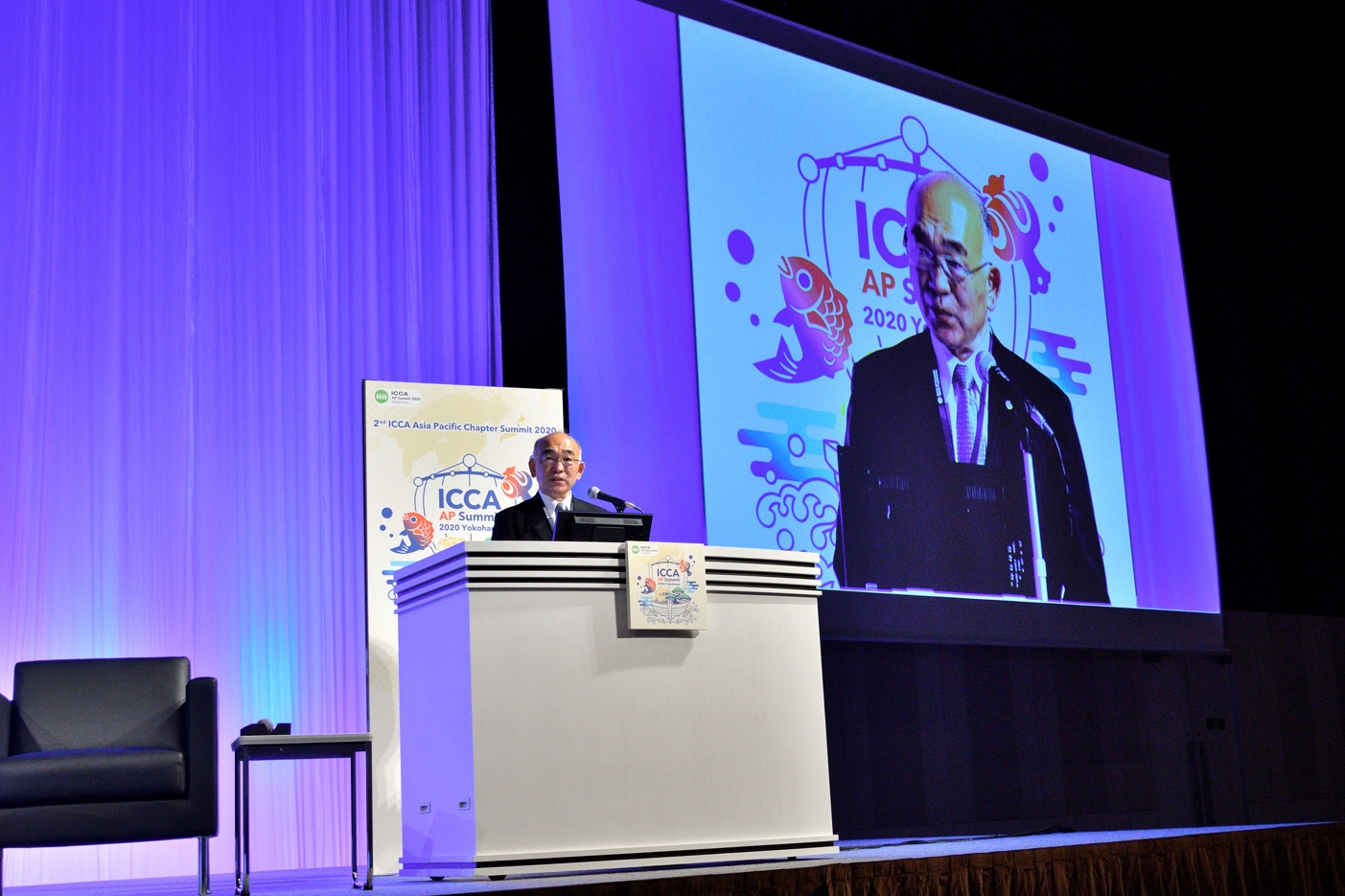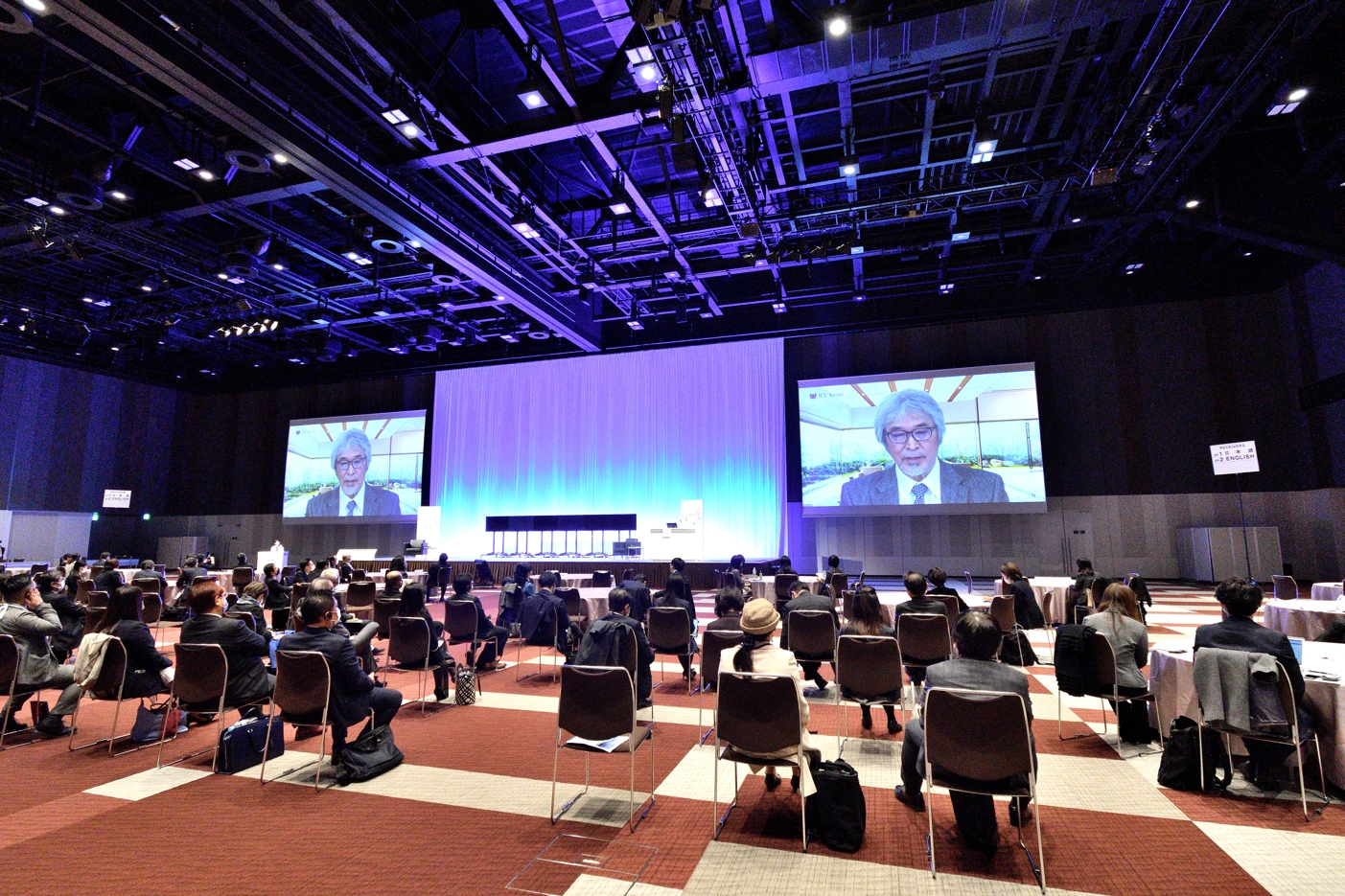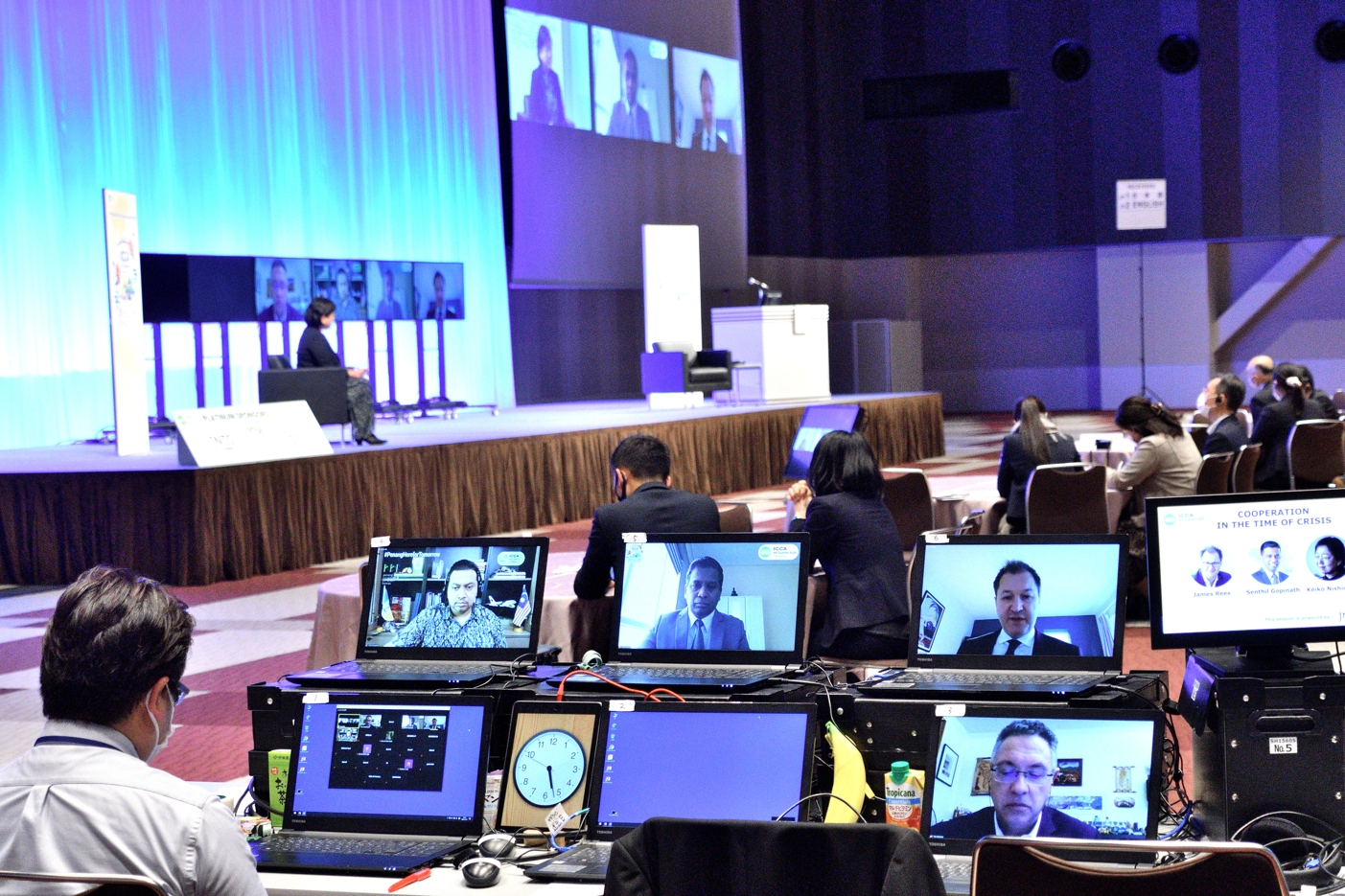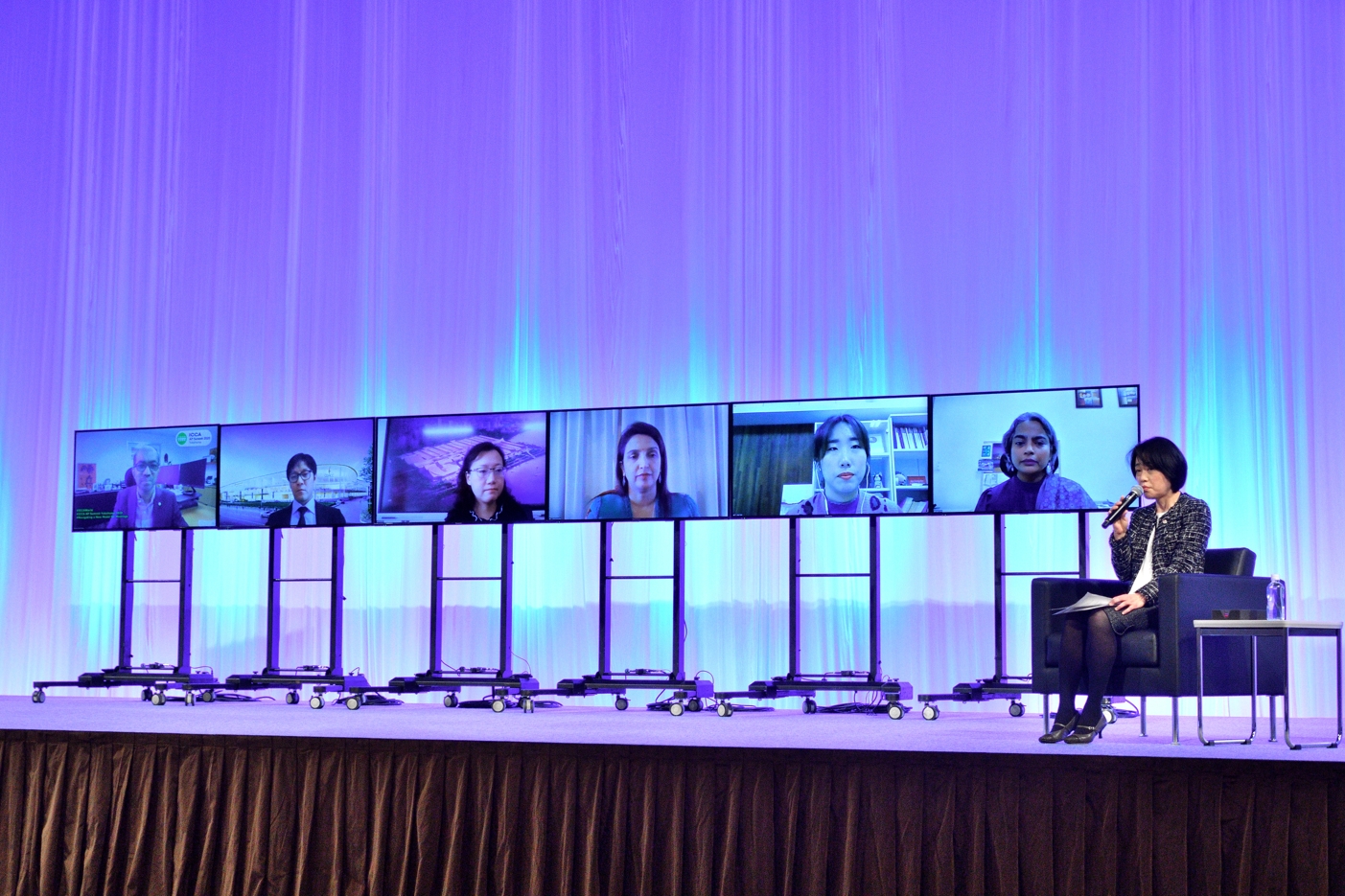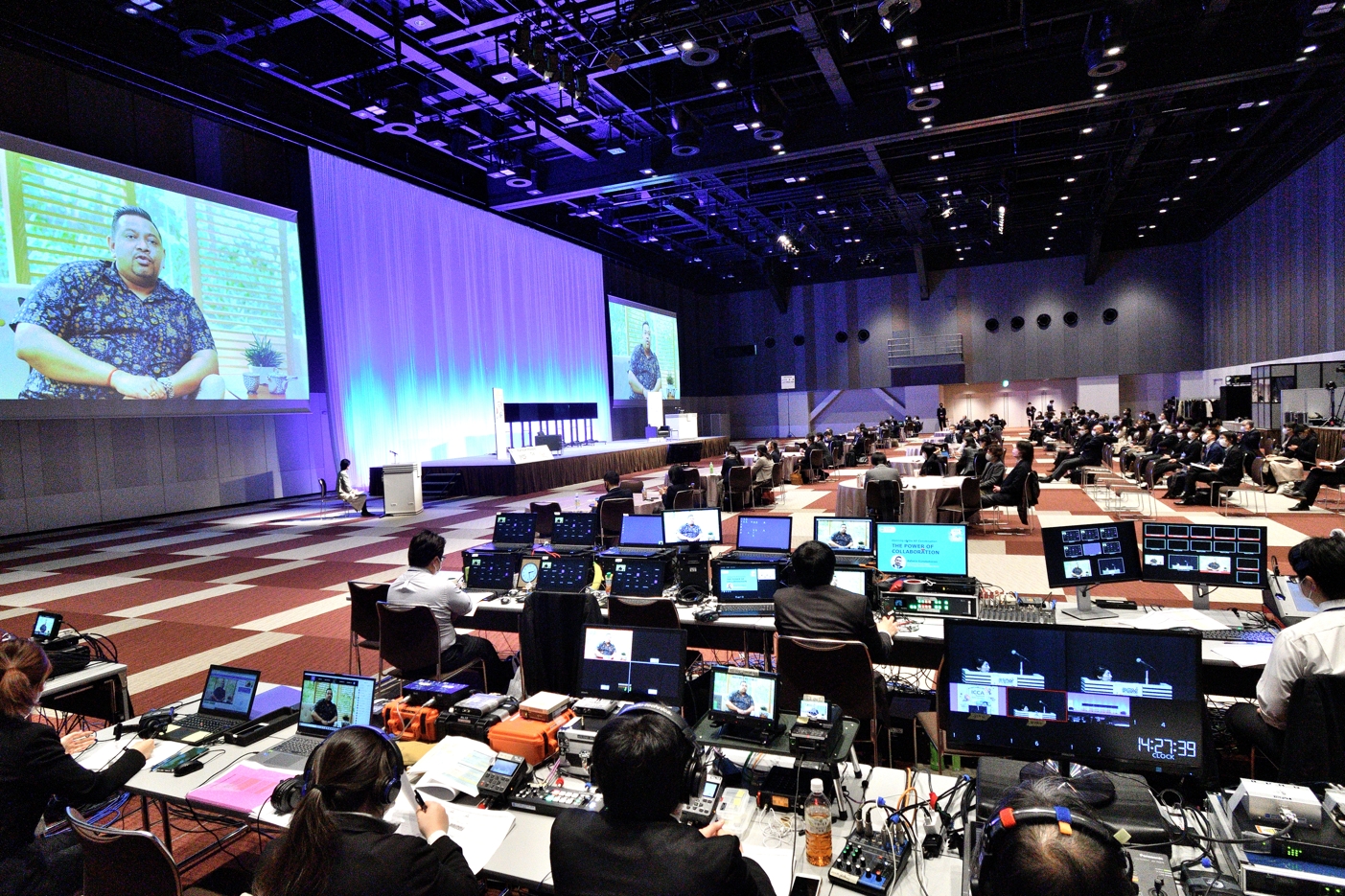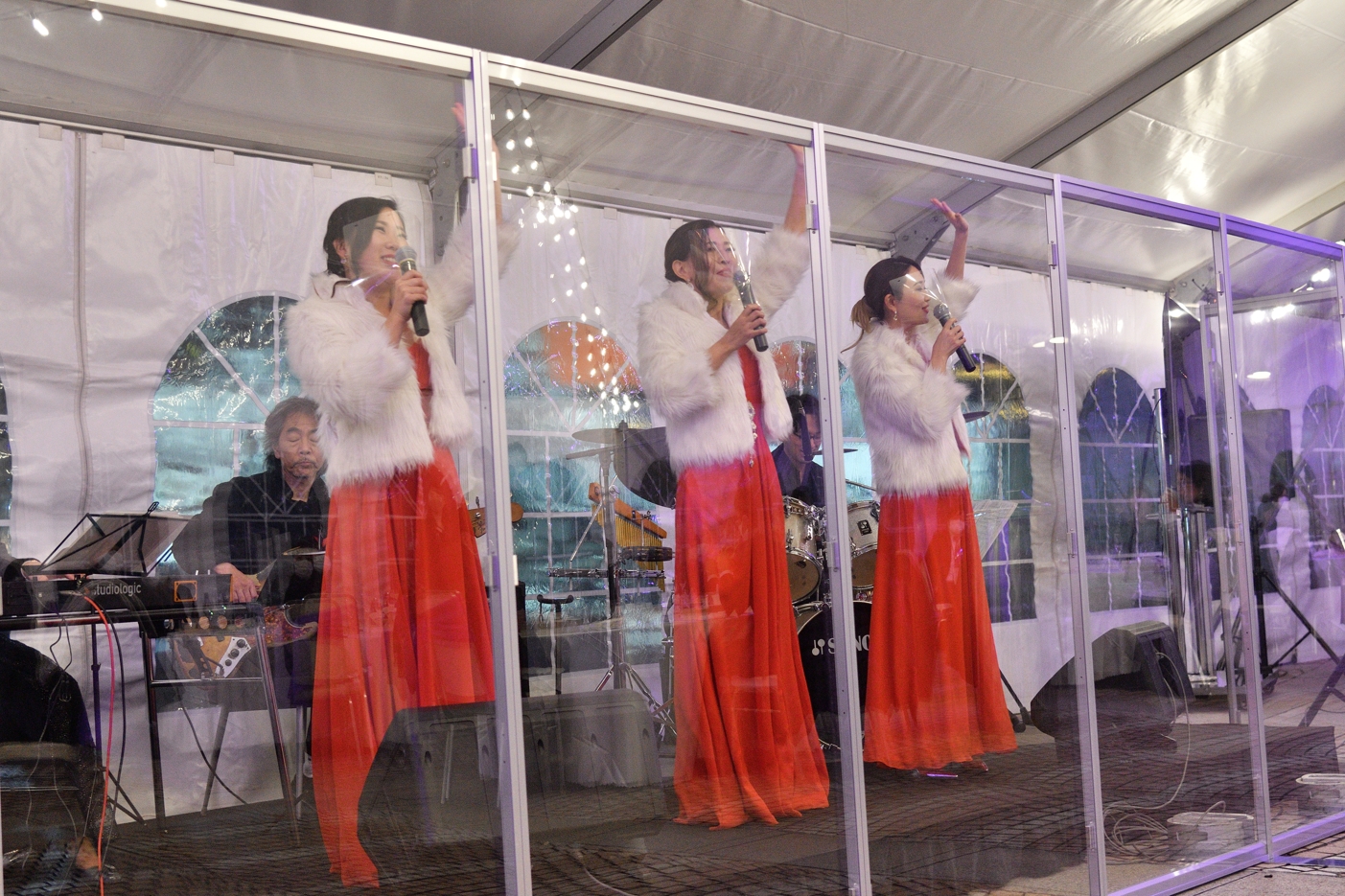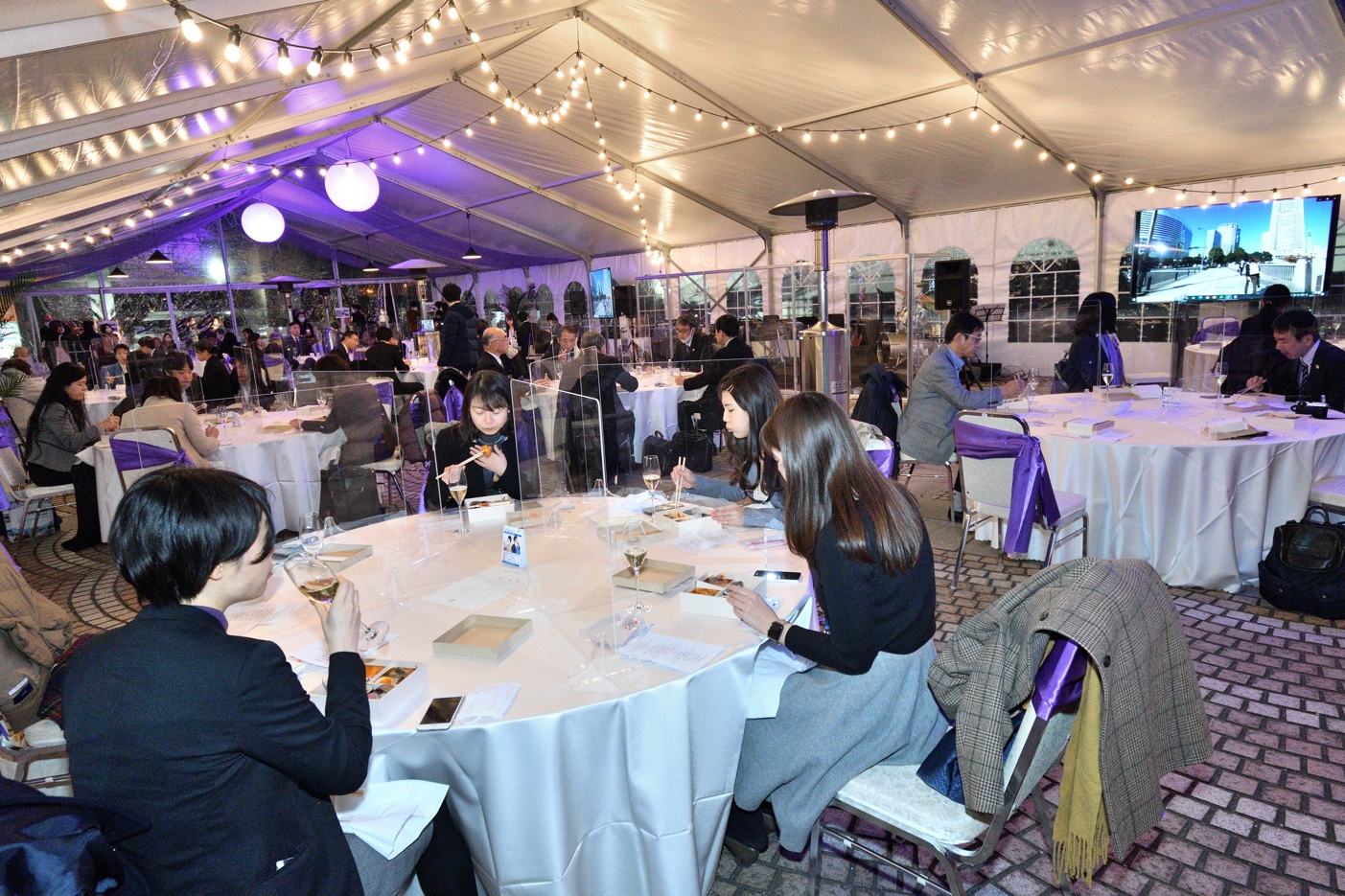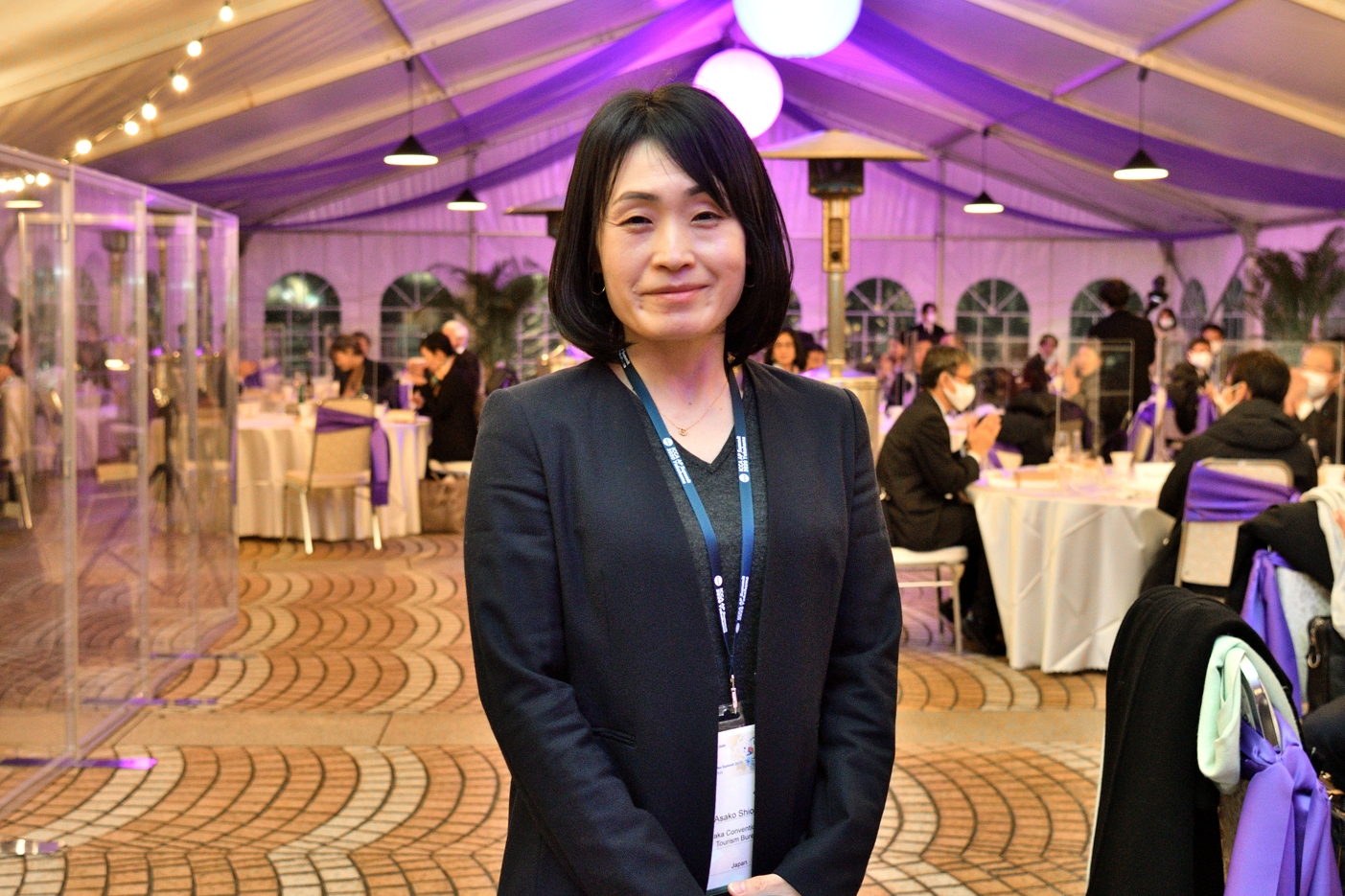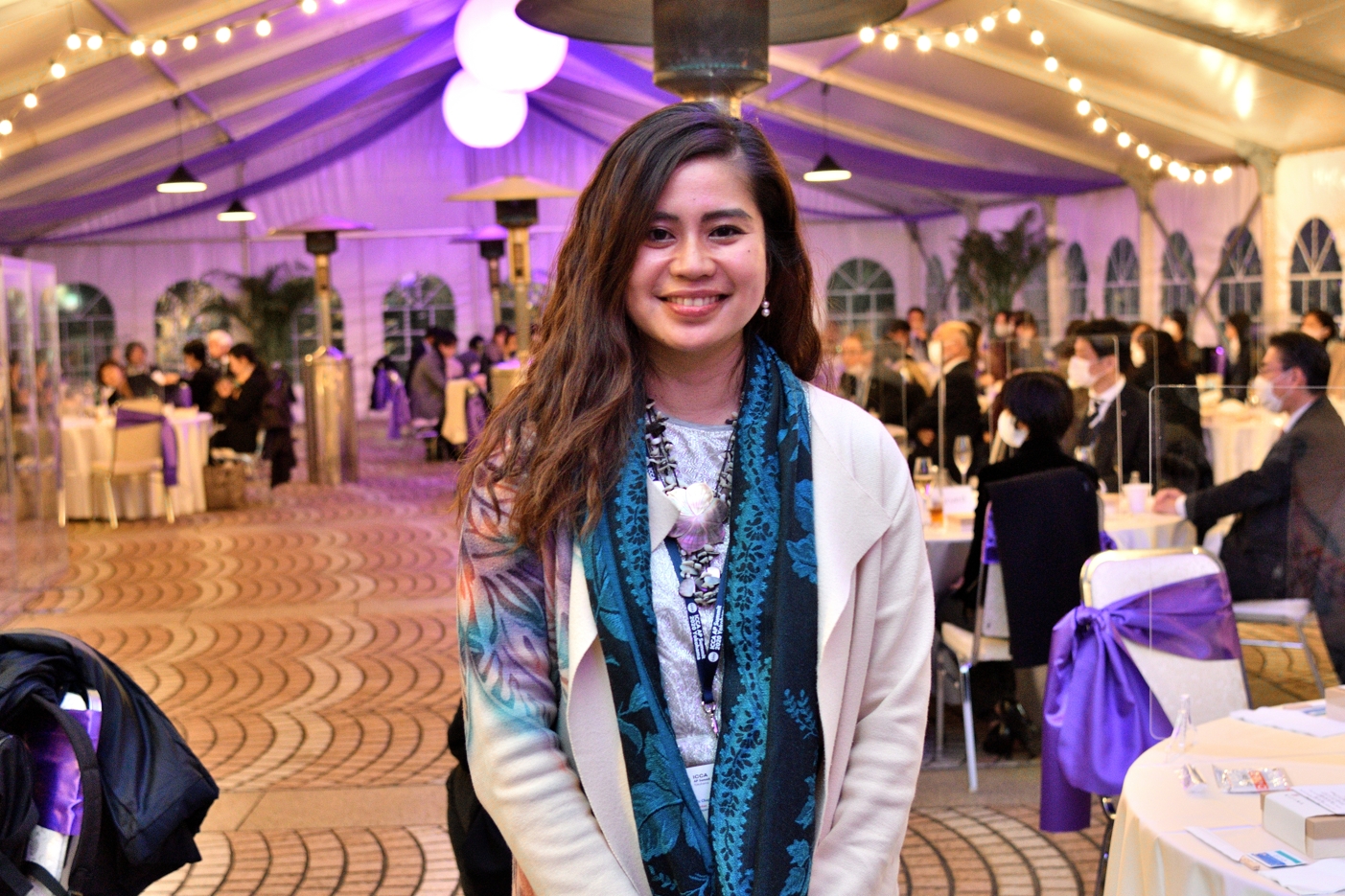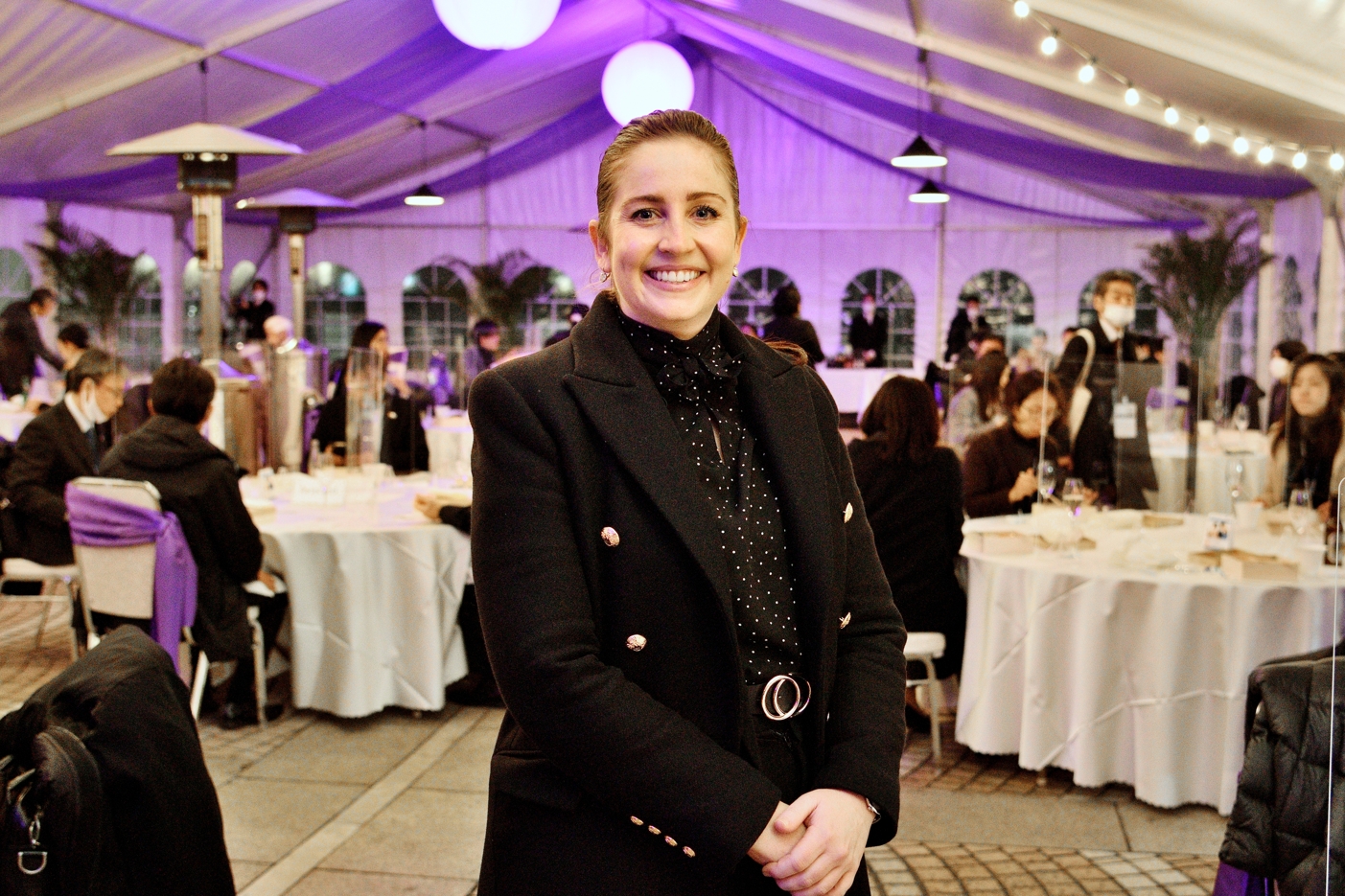Convention Case Studies
ICCA AP Summit
Conference Overview
| Event Name | ICCA (International Congress and Convention Association) Asia Pacific Chapter Summit 2020 |
|---|---|
| Dates | December 15-16, 2020 |
| Location | PACIFICO Yokohama North & online |
| Attendance | Over 300 onsite and online participants from 14 countries and territories |
Asia Pacific Conference Professionals Experience New Model for Meetings
In 2020, how the meetings and events industry functions had to completely change due to the influence of Covid-19. An international conference was held in December at PACIFICO Yokohama to demonstrate fresh ways of holding conferences suitable for now and the future.
It was Japan’s first time to host the International Congress and Convention Association Asia Pacific Chapter Summit (ICCA AP Summit) international conference. A worldwide organization with over 1,100 members involved in the global meeting industry, the ICCA’s Asia Pacific chapter is the association’s largest with 302 member companies and organization.
Only the second summit since the inaugural event was held in Malaysia in 2019, the 2020 event was held in a hybrid format connecting Yokohama, where Japan-based participants gathered, and members of Asia Pacific countries, who participated online. Under the theme ‘Navigating a New Model for Meetings’, international conference case studies were introduced by guest speakers, issues associated with the increase in holding hybrid events were discussed, and infection prevention measures were practiced at the host venue.
Bringing the ICCA AP Summit to Yokohama
The ICCA Asia Pacific Chapter Summit 2020 Local Host Committee managed the conference. Hiromi Murayama of PACIFICO Yokohama, the conference venue, explains her experiences about preparation and operation from the perspective of the organizer.
“We were working with the City of Yokohama and Yokohama Convention & Visitors Bureau (YCVB) to bring the ICCA General Assembly to Yokohama in 2020. But it was decided the event would be held in Kaohsiung, Taiwan. Subsequently, the summit for the Asia Pacific region was established, so we decided to first aim to attract the ICCA AP Summit to solidify our ground in Asia and with the aim to have that lead to hosting a future ICCA General Assembly.”
Yokohama was not originally to be the host city
“At the end of 2019, it was decided that the ICCA AP Summit would be held in Xiamen, China. However, soon after that decision, Xiamen offered to postpone its hosting of the event to 2021, due to the spread of the Covid-19 infection in China. There was then a consultation to hold it in Yokohama, the runner-up city during the event bidding process.
It was around March 2020 that we began to consider holding the event in Yokohama in earnest. At that point, we decided to commit to our motto of ‘creating a meeting that is resilient to risks’, with the aim of holding a hybrid event that can be changed to real or online depending on the situation.”
Challenges in holding a hybrid event
“First of all, there was the pain of incurring equipment and platform costs that we had not expected at the time of the physical event. In addition, events such as the ICCA General Assembly and other MICE forums, which are timed close to each other and also to be held as hybrids, and many virtual events were to be batting for Asian participants.
It was also difficult for such a newly created meeting to attract paid online attendees. Increasing the satisfaction of online participants is the biggest challenge for hybrid meetings, and I felt it would be difficult to provide online participants with experiences unique to Yokohama and the same networking opportunities.”
Making it rewarding for both in-person and online participants
“In view of the time difference and the concentration span of the online participants, we limited the planned two-day program to five hours in the afternoon over the two days. The program was divided into slots of up to an hour and broken up with frequent breaks.
We prepared social programs, such as Sankeien garden tours and Segway tours, and virtual Yokohama experiences (virtual site visits, kimono wearing, ikebana, 360° video experiences) on the platform so that online participants could feel the essence of Yokohama.
On top of this, we used lunchtimes to broadcast self-introduction videos of the participants. This was done in the hope that people who became interested in someone via their self-introduction would use the chat feature on the platform and send a message. During the coffee break, a Zoom meeting room was opened as a virtual lounge, allowing participants to communicate with each other, regardless of whether they were attending online or physically.”
Thinking about the future of international conferences
At the event, various in-person sessions were held based on the Guidelines for Safe and Secure MICE Events in Yokohama created by the City of Yokohama under expert guidance.
It was also the first international conference to adopt the Yokohama Blue Carbon Offset System, through which CO2 emitted by staging events is offset through CO2 reduction activities. On this occasion, the City of Yokohama invested in activities to reduce the amount of carbon dioxide emitted by the venue through electricity, and other means, by utilizing marine resources. ‘Blue Carbon’ is carbon absorbed or captured by seaweed and marine plants and 'Blue Resources' created using marine energy.
A primatologist’s view on human interaction after Covid-19
Keynote Speech by Juichi Yamagiwa, Primatologist, Former President of the Science Council of Japan, and Former President of Kyoto University
Society consists of three features unique to humans - freedom of movement, free gathering, and free interaction. How do human beings who have been deprived of these freedoms by the coronavirus disaster now interact and build trust?
As an opening lecture, Yamagiwa talked about MICE’s role from the perspective of a primatologist. While the development of the Internet has made it possible to transmit and share information in the brain, he points out that emotional and intuitive parts do not leave the brain and emotional sensations are becoming less and less felt.
Due to the coronavirus pandemic there have been fewer opportunities to meet in real life, and the lecture concluded with the suggestion that we should not give up gathering but incorporate face-to-face interactions at any meeting. Mutual trust is essential to liven up discussions and reach consensus. It is difficult to build trust online, and reliable relationships need face-to-face interaction.
Quick recovery for Asia Pacific - panel discussion
Leaders of the ICCA introduced the Kaohsiung Protocol, a framework that clarifies key trends and strategies that enable the current and future prosperity of the international conference industry. The protocol was drafted based on the opinions of 270 experts and regular conference participants in 90 countries. It provides a framework for the development and trends of MICE around the world from different micro and macro perspectives and provides members with criteria for organizing MICE events.
In this panel discussion it was revealed the Asia Pacific region is recovering from the impact of Covid-19 faster than other regions, and that Asia Pacific is showing new models for conferences, such as digitalization, legacy value measurement, diversification and decentralization. Participants commented, “It was really good to learn the direction we should aim for in the future in response to the New Normal.”
Cooperation in crisis - panel discussion
ICCA Asia Pacific members from Japan, Malaysia, Thailand, South Korea, China and India provided insiders’ perspectives on the current situation in their respective destinations, followed by a discussion on the prospects of the MICE industry in the Asia Pacific region post-Covid-19. It was cited that the MICE industry will continue, but it is necessary to flexibly respond to changing needs, digitize, and leverage new technologies.
A crossroad well navigated
Experiencing the host city is one of the attractions of international conferences and this one was to be no different. To explore Yokohama, tours were prepared in-line with infectious disease prevention measures and maintaining distance. Online participants were offered videos to enjoy the scenery of Yokohama and immerse themselves in Japanese culture on demand, such as ikebana flower arranging and kimono wearing. In Yokohama, a welcome reception was held at the waterfront Nippon Maru Memorial Park, in what was the first time for it to be used as a unique venue for an international conference.
The ICCA AP Summit was an opportunity for attendees to participate in an event at what feels like a turning point for international conferences. Participants shared the following remarks about the summit:
“I participated because I wanted to experience whether a hybrid conference can really be held and what kind of effect it has. It was good to see that even though everyone was not physically there, it could still be a good meeting and that we could get content and knowledge just like in a traditional conference.”
“It was a meeting where people classed as MICE professionals gathered, so I think it was a tough audience to satisfy, but as coronavirus prevention measures were thoroughly implemented, there were a lot of points to learn from.”
“It was a very interesting and future-friendly conference. It was a good opportunity to think about what other countries are doing in the Asia Pacific region and how to adapt them to Japan.”
